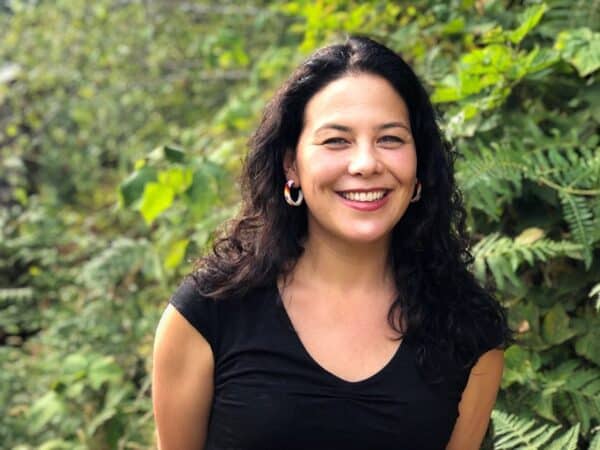
Reflections on Intergenerational and Climate Justice and the learnings from the Indigenous worldviews with Severn Cullis-Suzuki
Select Season
Listen to this episode: Duration: 50 min.
Quick Overview
“We are interconnected with nature, and with each other. What we do to the planet and its living creatures, we do to ourselves.” This is the phrase that opens this thoughtful and interesting podcast episode with Severn Cullis-Suzuki. She talks about intergenerational justice and its relation to climate change, her experience as part of the drafting commission of the Earth Charter, and her new role as Executive Director of the David Suzuki Foundation. She also looks back to the summit in Rio in 1992 and delivers a hopeful message of the hits (and misses) she has seen since then.
Questions and Topics Addressed in this Episode
- Can you comment on the idea of our interconnecteness with nature, and with each other? What does it mean? What is your understanding of this?
- Over the years, you have been advocating for Climate Justice, can you share what does it mean from your point of view and why is this important? Can you share some examples of that in practice?
- You have spent the past decade(s) of your life in or with Indigenous communities / (with First Nations people). Can you share with us two key things you learnt from this experience – something that helped to expand your worldview?
- Can we find key elements of Indigenous People´s worldviews reflected in the worldview articulated in the Earth Charter?
- What are your thoughts and highlights of your involvement with the Earth Charter? Some key moments and learnings?
- Over the years you have generated an interest on “endangered language revitalization,” this was part of your doctoral research, can you give us a gist of what was the focus of your research and your findings?
- What are the key areas of work of the David Suzuki Foundation? And how do you see your new role in it?
- It has been 30 years since Rio 1992, what are your reflections on that? Your call? Changes in your view of things? Any hope?
Severn Cullis-Suzuki

Reflections on Intergenerational and Climate Justice and the learnings from the Indigenous worldviews
Who is Severn Cullis-Suzuki?
Severn Cullis-Suzuki (Canada) is a culture and environment activist and writer, champion for the Canadian Earth Summit Initiative 2012 WE CANada, host of the APTN TV series ‘Samaqan – Water Stories, and was a founding member of the Haida Gwaii Higher Education Society. She is the Executive Director of the David Suzuki Foundation. She is a member of the Earth Charter Commission and International Council. A longtime activist for ‘intergenerational justice’, Severn founded the Environmental Children’s Organization with friends at nine years old, which culminated in her speech to the UN at the Rio Earth Summit in 1992 when she was twelve. Severn and the Skyfish Project brought the ‘Recognition of Responsibility’ pledge to the World Summit on Sustainable Development in Johannesburg 2002. Severn has participated in three speaking tours in Japan with the Namakemono Club. Severn is an Action Canada Fellow (‘04-‘05), has published several books, and is a co-editor and contributor for the book Notes from Canada’s Young Activists (Greystone books, 2007). She holds a B.Sc. in Biology from Yale University and a M.Sc. in Ethnoecology from the University of Victoria, where she studied with elders from the Kwakwaka’wakw First Nations. Severn lived for several years on the archipelago of Haida Gwaii off the coast of British Columbia where she studied the Haida language with her husband and two sons.
This podcast is developed by Earth Charter International as part of our work as UNESCO Chair on Education for Sustainable Development with the Earth Charter.






